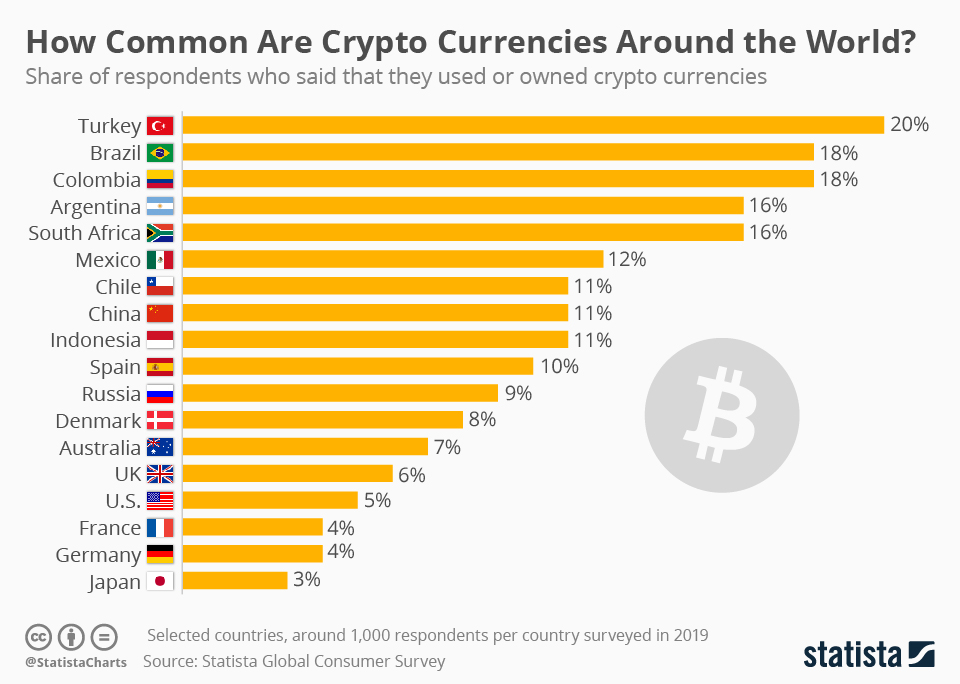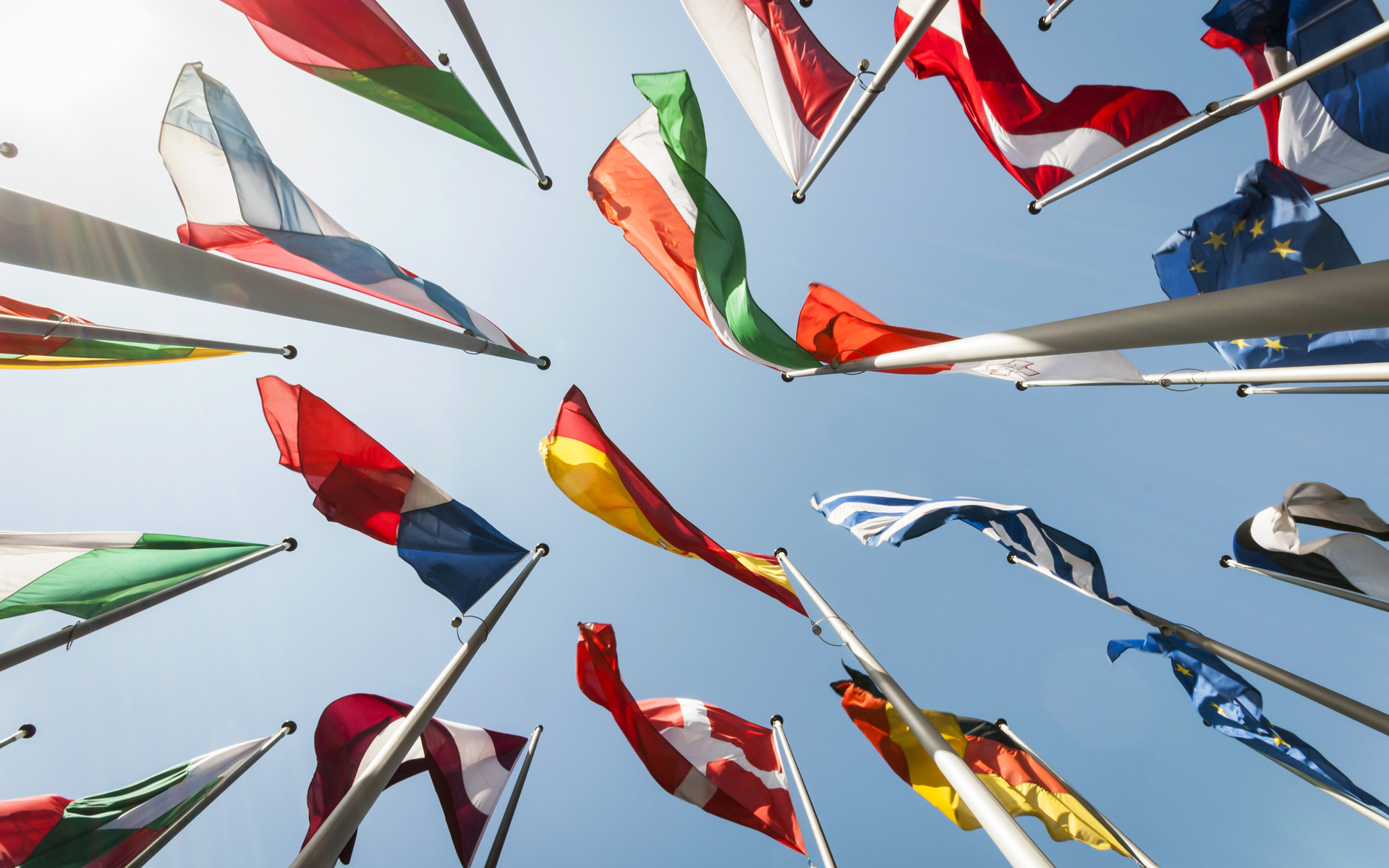When we think of cryptocurrency adoption, we often assume that South Korea, Japan, or the United States take the lead. Not so, according to the latest results from Statista.
For those of us engulfed in the world of cryptocurrency, it feels like we live and breathe Bitcoin–and we expect everyone else too as well. But while the percentage numbers may still be low relative to the entire population, check out the top five countries where cryptocurrency adoption is highest.

Cryptocurrency Adoption Is Highest in Turkey
Perhaps it’s not surprising that 20% of Turks own cryptocurrencies of some degree. In countries where government and bank trust is low, where the currency is subject to sudden devaluations, and its rulers have a tenuous relationship with the United States, cryptocurrencies seem to breed like rabbits.
With a dictatorial ruler at the helm willfully censoring content and throwing opponents in jail, Turkey has all the ingredients to make cryptocurrency adoption high.
Interestingly, though, if you check out the top countries for Bitcoin searches, Turkey never makes the list. It would seem that the astute Turks already know exactly what it is and how to buy it.
Brazil Picks Up Second Place
Brazil is hardly in economic tatters like its neighbor to the north. However, inflation did hit its highest rate in four years in April. In the same month, Brazil traded a record 100,000 bitcoins in 24 hours. That’s a massive 2 billion BRL (almost $500 million USD).
While the battle with banks is an ongoing saga here, progress is being made. Santander bank was forced to keep cryptocurrency exchange Bitcoin Max’s account open by the Justice system in February.
With rising inflation and an infamously corrupt government, it’s no surprise that the cryptocurrency scene in this country is booming.
Cryptocurrency Adoption Equally High in Colombia
In joint second place for citizens who own some amount of cryptocurrency is Colombia at 18%. With a Bitcoin-friendly government and home to well over a million Venezuelan refugees, many people here are using Bitcoin as a way of shielding their wealth. Yet others are managing their international businesses or using it as an investment vehicle.

Argentina and South Africa in Joint Third Place
From South America to Africa, both Argentina and South Africa show high cryptocurrency adoption at 16% of the population each.
Argentina regularly appears high up in the Bitcoin Google searches. Its population is clearly interested in finding an alternative to stuffing U.S. dollars in their mattresses to shield their wealth.
With 54% inflation, and a high level of Bitcoin education (you can use it to pay for public transport) it’s logical that cryptocurrency adoption is high here.
As for South Africa, interest remains strong despite recent regulatory clampdown. Many see it as a practical way of sending international payments, of shielding wealth, and investing.
Japan Brings Up the Rear, South Korea Doesn’t Appear
Japan brings up the rear when it comes to cryptocurrency adoption. Just 3% of its highly tech-savvy population has owned or trading cryptocurrencies according to the survey.
Perhaps most surprising, though, is the fact that South Korea, a major player in the cryptocurrency space, doesn’t even appear in the survey. Considering that this country makes up around 30% of all trading, it seems a little strange. Is it a very tiny percentage of Koreans moving all those digital coins around or was Statistica asking the wrong people?
What are your thoughts on the global crypto distribution? Let us know in the comment section below!
Images via Shutterstock











